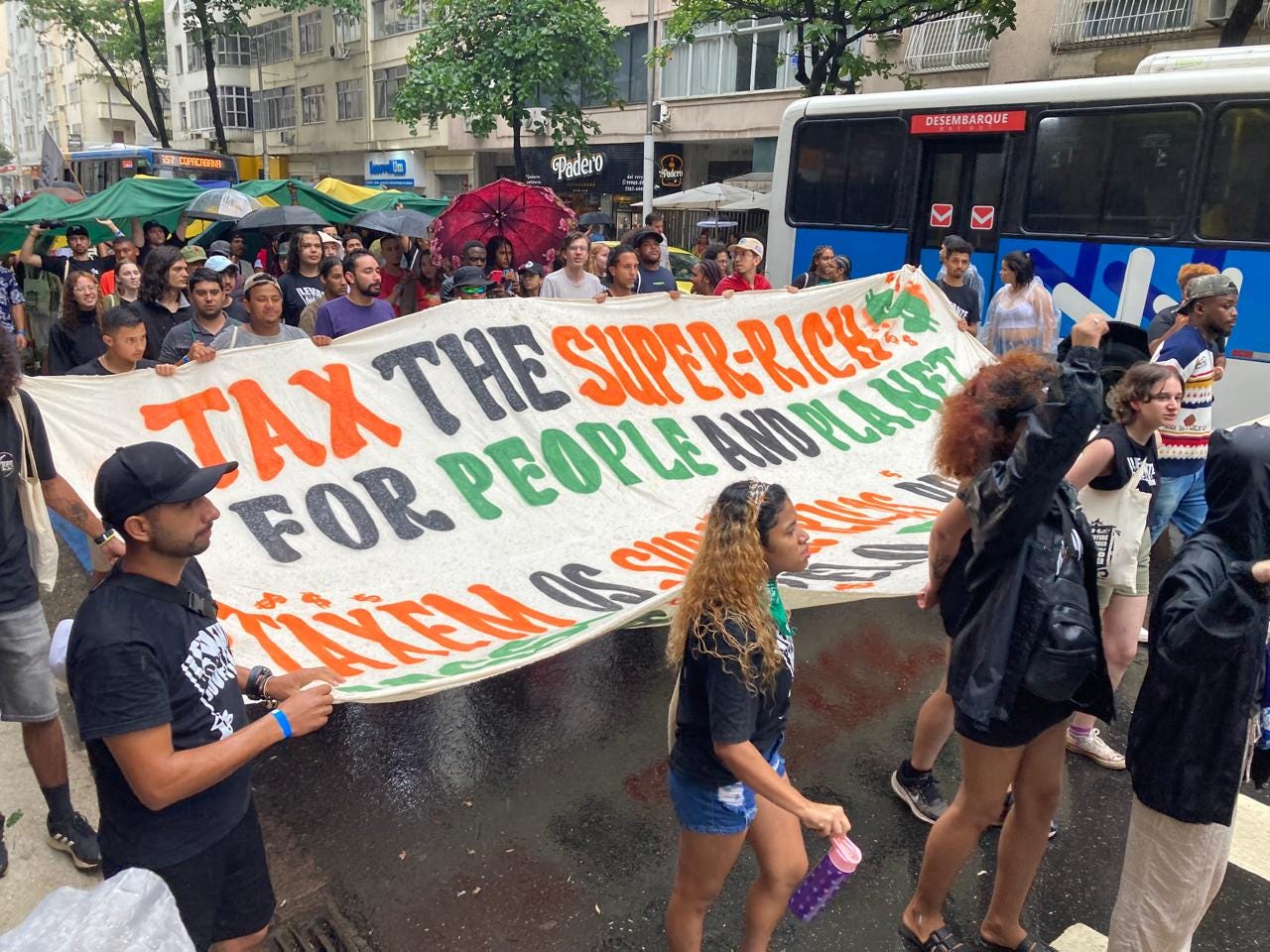The future is bright: the future is taxing the super-rich
Leaders meeting in Rio de Janeiro, Brazil, agreed to engage cooperatively to ensure that ultra-high-net-worth individuals are effectively taxed.
Last week’s G20 Leaders’ Summit marked an historic victory in the fight to reduce extreme inequality and increase taxes on the wealthiest individuals. Leaders meeting in Rio de Janeiro, Brazil, agreed to “engage cooperatively to ensure that ultra-high-net-worth individuals are effectively taxed.” This ground-breaking commitment has paved the way for a global deal to tax the super-rich that the world sorely needs.
Taxing the super-rich in numbers
Extreme wealth has reached obscene levels in G20 countries and beyond.
31% of all wealth in the G20 is owned by the richest 1% while the bottom half of the population owns less than 5%. And since 1980, the top 1% of earners in G20 countries have seen their share of income rise by 45%, while top income tax rates on them have fallen by roughly a third during the same period.
The world's 16 richest individuals have so much money that they would still be billionaires if 99% of their wealth vanished overnight. Yet Elon Musk – one of the richest men in history – paid a ‘true tax rate’ of about 3% between 2014 and 2018. Compare this to Aber Christine, a flour vendor Oxfam works with in Uganda, who makes $80 a month and pays a tax rate of 40%.
Add to this the trillions of dollars of investment needed to tackle extreme inequality, poverty, and the climate crisis. And to the people supporting action to tax the richest – including millionaires themselves calling to be taxed more – and there’s a compelling case for governments to take action.
The rumble in Rio
A Heads of State and Government commitment to cooperate on taxing the super-rich should have been in the bag –G20 finance ministers had already agreed to the same language back in July. But the Argentinian leadership sought to sabotage the deal; their negotiators were reported as “vehemently opposed” to including any language on taxing ultra-high-net-worth individuals in the G20 Rio de Janeiro Leaders’ Declaration.
It is a testament to the commitment of other G20 countries that they fought to keep this historic deal alive. As is the Brazilian, South African and Indian leaders’ joint IBSA communiqué applauding success on the issue and calling for an early protocol on the effective taxation of high-net-worth individuals under the UN Tax Convention.
Of course this is not a job done. We now urgently need global standards to tax the richest 1% - the billionaires and multimillionaires of the world – at a rate high enough to bring down inequality. The commitment of President Ramaphosa is particularly crucial as he takes the reigns of the G20 on 1 December.
Something to read / listen to
Read what millionaire musician and producer Brian Eno has to say about taxing the super-rich:
Check out the “Say It With Me Now” campaign film — a powerful video featuring diverse voices from across the globe united in the call to #TaxTheSuperRich.
Listen to our latest Equals Podcast where we discuss the potential for South African to turn the tide on inequality.


